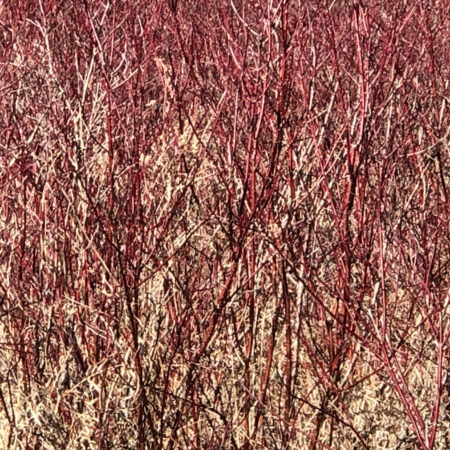“Bloom where you’re planted!”
I’ve tried to follow this advice throughout my life, and for the most part, it has made sense to me. There are many things within my control, but there are others that seem more entrenched. It is important to be aware of my social location, where I find myself in the categories of gender, race, economic class, age, ability, religion, sexual orientation, and geography. It seems like some plants (and people) thrive better in certain environments.
In my forest there is a plant I consider invasive: the red twig dogwood. It spreads like a vine wherever there is sunshine. It coils and twists and grows in every direction. And it can be beautiful with its big white flowers and deep red bark against the snow. But for me it is a tangled mess. It wants to trip me in my tracks and take over my trails. A noxious weed!
Imagine my surprise when a few years ago I saw a few stalks of red twig dogwood offered for sale at $20 a bunch in a grocery store. Yes, it looks lovely with your Christmas greenery, but it’s still a weed! And then I was astonished to learn that some Native American tribes use the dogwood to weave beautiful baskets. It takes time, talent, and tradition to make something out of nothing. I’m more impatient, but now I have respect for the dogwood.
Our theme for April is “Becoming.” One way of becoming is to allow the seeds within us to find a place to grow. Many Unitarian Universalists have had to “uproot” themselves from other schools of thought to find a more compatible, organic, free range religion. But most plants don’t bloom immediately. It may take time to acclimate to new surroundings.
As a blooming community, we each have a place in the garden. None of us “owns” this plot of theology. We have no infallible founder. We rely on each other to fertilize the soil and tend to how we grow together. In our becoming, let us remember to leave some open space in our garden, both for us to thrive and to allow others to join us.

